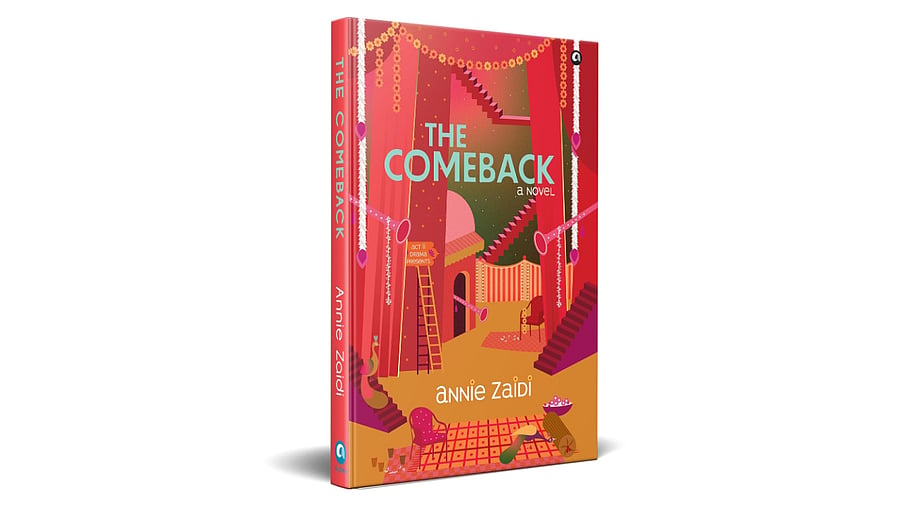
The Comeback
Credit: Special arrangement
The Comeback by Annie Zaidi is a refreshing and nuanced exploration of love and friendship, delving beyond its narrow romantic connotations to reveal the complexities of human relationships.
Written in Zaidi’s signature style—unembellished yet evocative, with a sharp eye for the minutiae of everyday life—the novel brings both its characters and their surroundings vividly to life.
At its heart, it is the story of two college best friends whose bond fractures, leading to years of estrangement.
Jaun Kazim, aka John K, spent his formative years immersed in the world of local theatre during his college days, all the while nurturing a dream of breaking into the film industry. Like countless others chasing stardom, he eventually makes the move to Mumbai. After years of relentless struggle, he finally lands a pivotal role that catapults him to fame. However, what he doesn’t anticipate is the way this newfound fame will unravel his life. In a candid interview, Jaun opens up about his past, particularly about his childhood friend, Asghar. A few seemingly innocent revelations about Asghar set off a chain of events that disrupts Asghar’s life in unexpected and devastating ways.
Asghar, a middle-class banker, suddenly finds his life unravelling. His reputation is shattered, his career comes to an abrupt halt, and the cracks in his marriage begin to surface. Struggling to make sense of the turmoil, he retreats to Baansa, his hometown—a place he once left behind in pursuit of stability. But returning home is not just an escape; it becomes a rediscovery. He finds solace in the one passion he had abandoned long ago: theatre. As Asghar immerses himself back into the world of theatre, his journey transforms into more than just a personal revival—it ignites a series of ‘comebacks’ that ripple through the narrative, making the novel’s title both fitting and profoundly symbolic.
The title, in fact, unfolds in layers, peeling away like an onion, revealing new dimensions with each turn of the page. As the story progresses, readers witness multiple manifestations of ‘comeback’—people re-entering each other’s lives, the rekindling of lost hopes, the emergence from despair, and, at its most literal, the physical return to Baansa, the hometown where it all began. Beyond the personal narratives of its protagonists, the novel is also an ode to theatre. Zaidi’s love for the theatre is palpable throughout, not just in the setting but in the very fabric of the storytelling. Her careful selection of classic plays and their thoughtful reinterpretation within the context of Baansa and its people add a unique texture.
Another striking aspect of the novel is the depth and development of its characters, particularly the women. Zaidi crafts female characters who are not just incidental to the plot but central to its emotional and thematic core. Shakeela Ma’am, Asghar’s mother, is a resilient woman who refuses to compromise on her principles, even when it comes to her own son. Zubi, Asghar’s wife, initially disapproves of his abrupt career shift and resists the idea of working to support the family. As the story unfolds, she undergoes a transformation—not only launching her own business but also actively becoming part of Asghar’s theatrical revival. Then there is Nazo, who once loved Jaun and spent years waiting for him. Yet, her journey is one of profound self-discovery; rather than remaining tethered to unfulfilled love, she chooses to carve out a life for herself, free from the weight of male validation—be it from Jaun or her father. Each of these women navigates their own ‘comeback,’ asserting agency in ways that defy traditional expectations, making their arcs some of the most compelling in the novel.
At its core, The Comeback is a meditation on lost dreams, fractured relationships, and the possibility of redemption. With a narrative that is both intimate and expansive, Zaidi masterfully captures the emotional turmoil of betrayal, the quiet resilience of those left behind, and the unexpected ways in which life circles back.The novel stands as a testament to the idea that sometimes, coming back is not about reclaiming what was lost, but about discovering something new within ourselves.